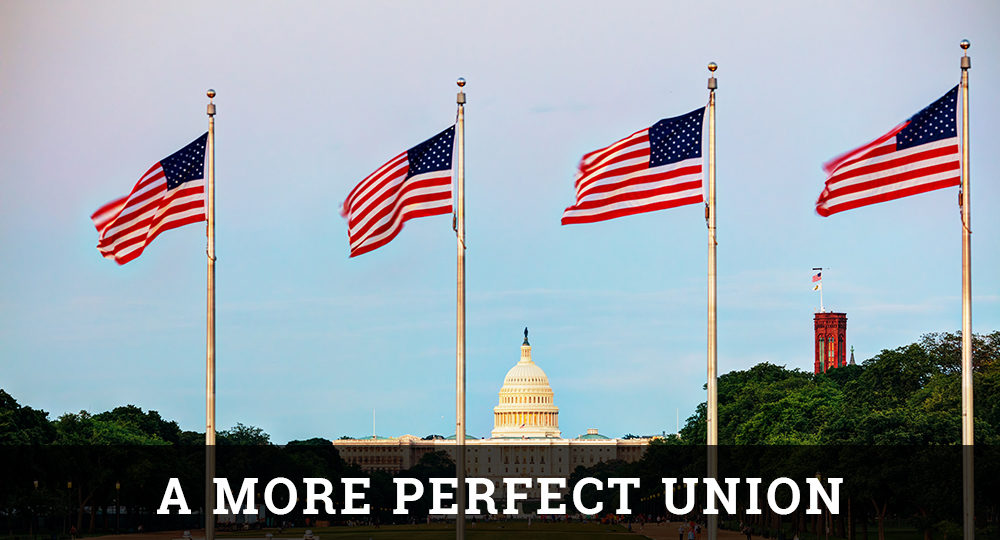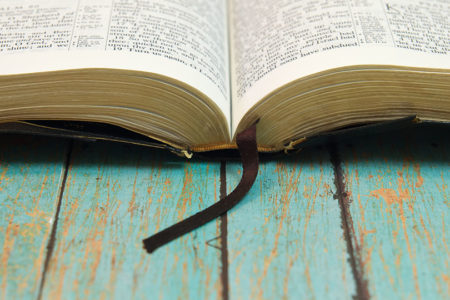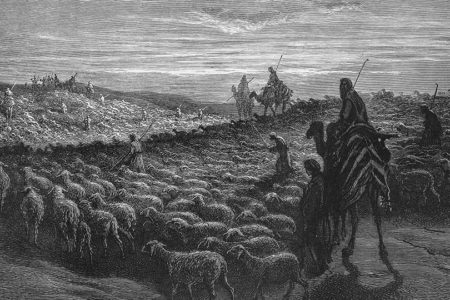A More Perfect Union Mar/Apr 2010
Even the quickest glance at the text of the First Amendment to the U.S. Constitution makes one thing exceedingly clear: each of the rights guaranteed therein—religion, speech, assembly, and freedom of the press—were meant to apply to private citizens and were enshrined in our Bill of Rights to keep them vibrant and free from excessive government control.
If we go back to the intent of our Founding Fathers, we see their very notion of freedom of the press, for example, was to safeguard the news media from government regulation. There was a good reason for that. In 1774, when the beleaguered Continental Congress began to realize the colonies might have to break with England, the delegates were already thinking ahead to the basics of a free government and healthy society. On October 26, 1774, members of the Congress penned a letter to the inhabitants of the Province of Quebec, hoping to gain their support against England. In that letter they described, among other things, what they saw as the essentials of a free press:
The last right we shall mention, regards the freedom of the press. The importance of this consists, besides the advancement of truth…its ready communication of thoughts between subjects, and its consequential promotion of union among them, whereby oppressive officers are shamed or intimidated, into more honourable and just modes of conducting affairs.
Obviously, the more our government funds and/or controls the press, the less inclined the news media will be to expose corrupt governmental policies and practices.
One of the disturbing trends in Washington today, under the guise of trying to “save” journalism, is the rush to insinuate the federal government into the private news and information business. The collapse of much of the print newspaper industry in America (some newspapers are, however, switching to all-electronic formats rather than closing their doors) is seen as an opportunity to create a federalized press.
In July 2009, Michael Copps, one of the five commissioners of the Federal Communications Commission (FCC), released a report that bemoaned the decline of American journalism and invited the federal government to see how it could become involved. He blamed the decline, in part, on “deregulation.” Translated, the solution for him is more regulation.
In September 2009 the John S. and James L. Knight Foundation awarded a $1 million grant to National Public Radio (NPR), forming a partnership of sorts between the liberal think tank that advocates more government intrusion into journalism and NPR. In December the FCC met with representatives of this partnership to help the effort along and assist NPR (a taxpayer-funded entity) in enlarging its already considerable media presence through Web and mobile platforms, such as cell phones.
On October 19, 2009, the Columbia Journalism Review ran an article by The Washington Post’s Leonard Downie, Jr. and Columbia University communications professor Michael Schudson. Titled “The Reconstruction of American Journalism,” it suggested the federal government correct the decline of journalism by increasing public taxpayer funding for the Corporation for Public Broadcasting.
The FCC has launched a plan to institute new federal regulations and oversight of the Internet and is scheduled to report to Congress about creating a massive national broadband initiative that will reach every home in America. Furthermore, in the spring of 2010 the Federal Trade Commission and FCC will jointly investigate more ways in which the federal government can address the issue of “journalism” in America.
As I consider this trend, I am reminded of a comment I read from Russian journalist Irina Samokhina. At a freedom-of-the-press roundtable in November 2009, she described what happens when a state-run press is allowed to flourish. The private press’s biggest competitor becomes the government, she said, which uses public tax dollars to suppress and oppress the private media. In Russia there are 63 state-run newspapers in one region alone. As Washington increases its grip on the news media, both through increased regulation and state-sponsored news outlets, we can only wonder whether we will soon see an American approach to news that resembles the old iron-curtain, arm-of-the-government newspaper, Pravda.







